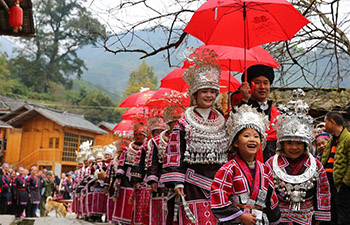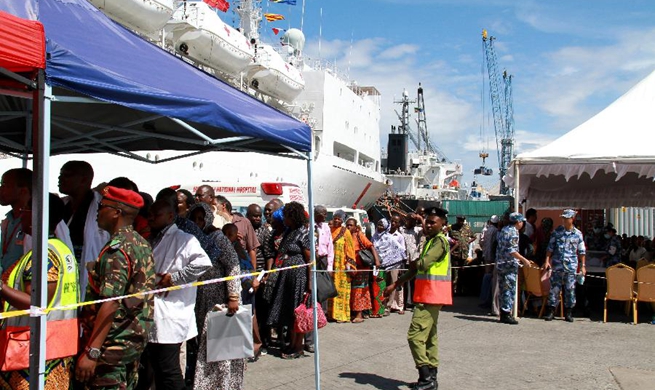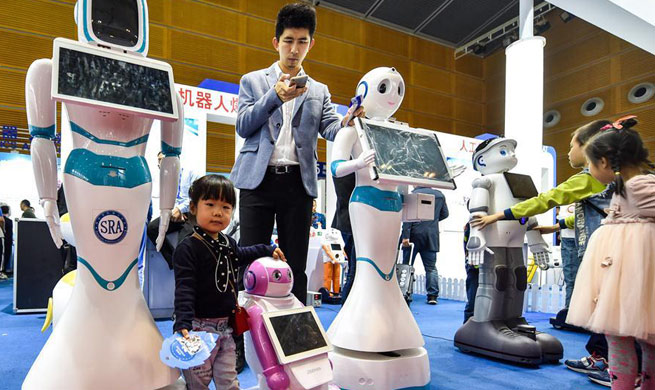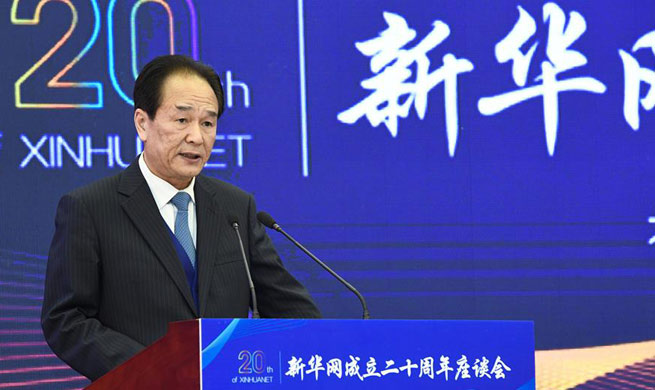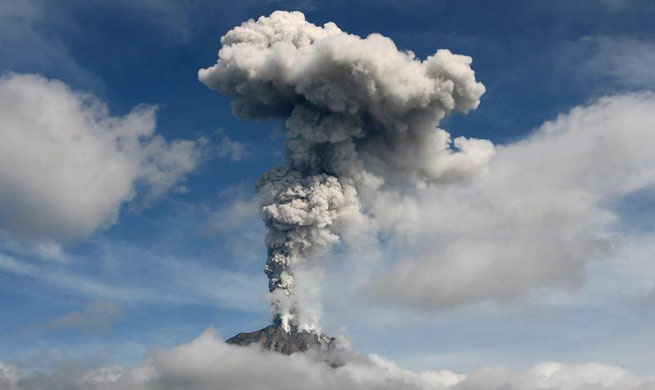by Misbah Saba Malik
ISLAMABAD, Nov. 21 (Xinhua) -- Madeeha, 10, works as a domestic helper in Islamabad to earn bread and butter for her family, and buy medicine for her ailing father who has been suffering from an aggressive renal disease for the last six years.
"We are four siblings, my mother and I work as domestic helpers, my elder brother works with a tailor and my younger brother works at a car workshop to help cover the expenses of the family," Madeeha told Xinhua.
She said that her siblings and her want to go to school like the children of rich families where she works, but her mother says they will die of hunger if they don't earn money.
According to a survey by the country's Federal Bureau of Statistics, about 22.6 million children were out of school during the year 2015-16, most of whom were working as child labor.
The number of out-of-school children has reduced from 24 million in the year 2014-15, but the current number still paints a gloomy socioeconomic picture and needs the government to put an emergency education policy in place.
Kalsoom Sumra, an assistant professor of Public Policy in Comsats Institute of Information and Technology Islamabad, said that decrease in the number of out of school children shows that people are becoming more aware about the value of education, but the situation is still not under control.
Selling toys in a market in Islamabad, Hassan Ali said his father tends to a rich landlord's fields in their village in central Punjab province, while he sells toys all day long in Islamabad to earn about 10,000 (100 U.S. dollars) a month.
The kid also said he eats once a day from a food stall and sleeps in corridors of commercial areas of the capital with other children of his age at night.
"I send money every month to my mother and three sisters back home, and visit them on Eid holidays, (two biggest festivals for Muslims on the 10th and 12th month of the Islamic calendar), I want to see them often but if I stay in village my mother and sisters will not have anything to eat," Ali said.
Assistant professor Kalsoom Sumra said there are lack of economic opportunities in Pakistan due to which child labor is increasing in the country.
"The public sector does not have many jobs to offer, the private sector also has limited employment, due to which people from the lower economic strata are not interested in sending their children to school because they think that their children will not get jobs even after they send them to school," she said.
Hammad Khwaja, an activist for children rights with a non-government organization in Islamabad, said it is a pity that many educated people in the country do not have jobs to support their families, so they have to set up fruit, vegetable or clothing stalls in markets to make ends meet.
"There are many educated, but poor people who themselves did not reap the benefits of education who are not inclined to send their kids to school and instead send them to either tailors or motor workshops to get trained and later work as tailors and mechanics workers."
The country's government is making legislations to help and support underprivileged children of the society.
Talking to Xinhua, Muhammad Hassan Mangi, director general of the Ministry of Human Right Pakistan, said that legislation is in the making to bring street children under the protection of the state. The state will become guardian of such kids, and they will be provided education and given funds once the legislation is made.
He said that government has made education free and compulsory for the children of 5-16 years of age, and 46,000 new classrooms have been built in various schools over the last three years to accommodate more students.
Mangi said that a department Benzair Income Support program of the government is also giving financial aid to the poor families who send their girl children to school.
The government is taking initiative to improve the overall situation of the children in the country, but still it is an uphill task to take quantum of out-of-school children to educational institutions because of lack of resources, he said.
"The progress is slow and gradual due to lack of government resources. Obvious change in the condition of the children cannot be brought overnight, it will take years," he said.
Pakistani children are capable of achieving wonders if they are provided with the right opportunity and guidance.
The country's Higher Education Commission provides scholarship to brilliant students, enabling them to study in big universities of the world free of cost. Also there are several cultural exchange programs every year where students from different backgrounds are sent to different countries for visits and studies.
Mangi said that government has substantially increased the budget of the Higher Education Commission to help competent students achieve their dreams.
There is a set of Pakistani children who have defied all odds to stand out in the society due to their sheer will power, because of the right guidance.
Heera Akbar, 14, from Swat Valley of the country's northwest Khyber Pakhtunkhwa (KPK) province, has been nominated for the International Children's Peace Prize.
Akbar has raised her voice for child rights, with the main focus on corporal punishment, employment of young girls as domestic help and child marriage.
There are a few other examples of child prodigies, including Haroon Tariq of KPK who holds the world record of 87 A's in O/A Levels.
A Pakistani child, Sumail Hassan Syed, became globally known for his excellent gaming talent in 2015, and was recruited by the "Evil Geniuses," the biggest e-sports team. Syed helped his team to win the second biggest tournament, Dota2 Asian Championship, and won 1.2 million U.S. dollars.
A six-year-old British-Pakistani boy Hamza Shahzad became a Microsoft certified professional by scoring 757 marks, which was a good margin above the required 700 points, at the qualifying test.
Many Pakistanis including economics professor Haleema Khan, at the Government College University, believes that China-Pakistan Economic Corridor will help improve the Pakistani economy and hopes that its rich dividends will trickle down to the children.
"With the envisaged industrial zone coming to fruition, an overall improvement in the economic picture will help alleviate the plight of child laborers," she said.




